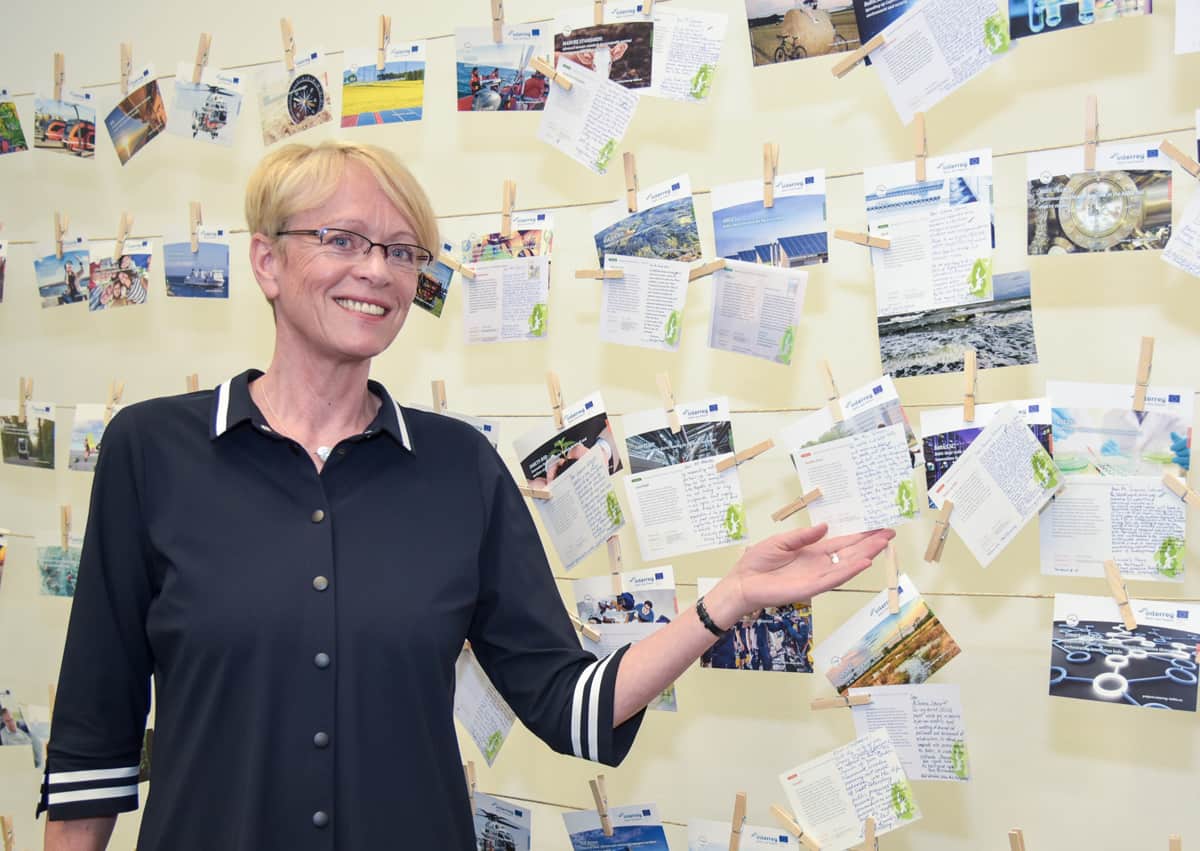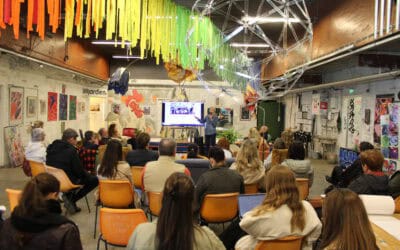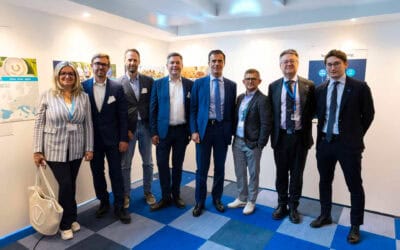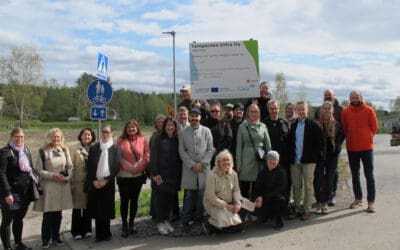Just in time, at the peak of implementing 123 Interreg Baltic Sea Region cooperation projects, the Russian Federation has become a fully-fledged member of the Programme. Numerous projects have taken on board Russian partners. They help tackle challenges that go beyond borders and build trust across the region.
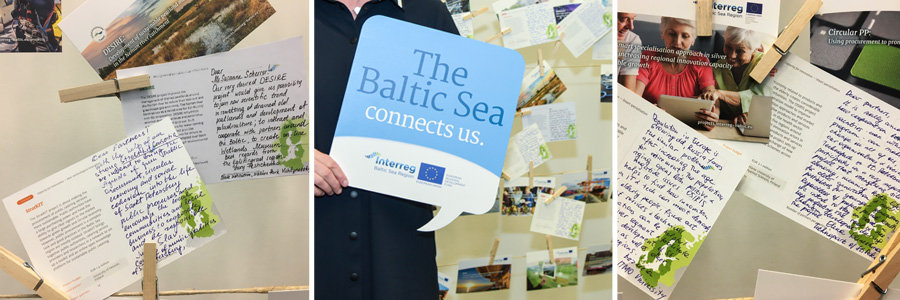
Russia formally joined the ongoing Interreg Baltic Sea Region Programme in January 2018, when the Russian Federation and the European Commission signed a financing agreement. This agreement was the prerequisite for paying out funds to organisations located in the Russian Federation. Transnational cooperation in the Baltic Sea region with Russian partner organisations had financially been supported for the first time from 2005 to 2008 through the EU-TACIS funding, which financed joint work of EU and Russian regions and cities. Later, Russian organisations contributed to projects as associated partners without a budget of their own.
30+ projects with Russian partners
Since 2018, partners from Russia have been involved in more than 30 out of 88 ongoing projects of Interreg Baltic Sea Region, covering all three programme priorities: innovation, sustainable transport and management of natural resources. The hotspots of cooperation are St. Petersburg and Kaliningrad, but project partners are also located in other parts of Northwest Russia, namely Pskov, Petrozavodsk, Cherepovets and Arkhangelsk. The types of partners range from universities to city administrations and from companies to environmental NGOs.
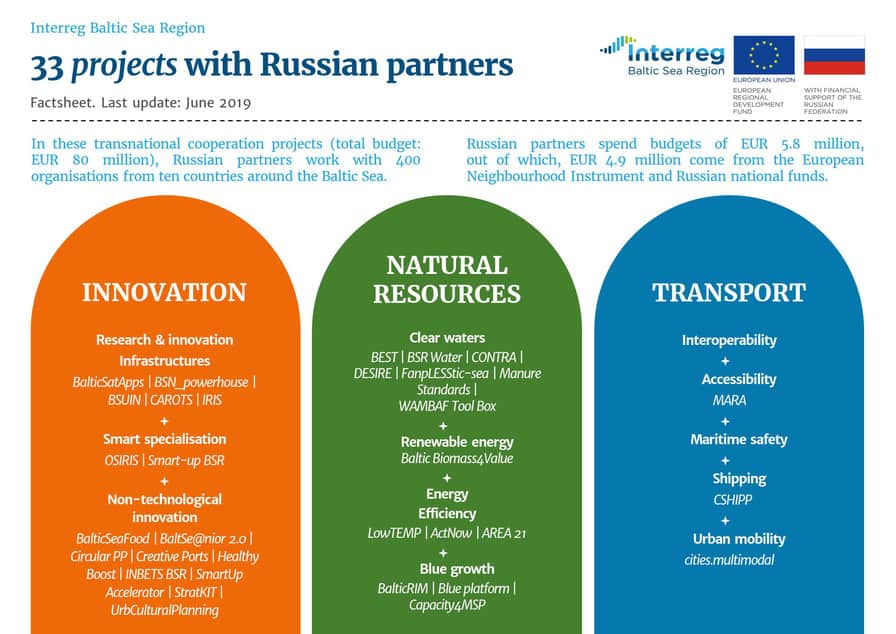
33 projects with Russian partners.
Deploying solutions beyond borders
This cooperation with Russian partners helps organisations in the other countries around the Baltic Sea region to tackle challenges that go beyond borders. Russian partners contribute to making the Baltic Sea waters clearer and healthier by reducing harmful emissions from manure (MANURE STANDARDS), from forestry (WAMBAF Toolbox) and from industrial sewage (BEST), and they help to identify ways to reduce the release of plastic into the sea (FanpLESStic-sea). “Thanks to these projects, mutual efforts have led to viable results in more efficient water management, and we are happy to be part of a highly professional, international team”, says Olga Sheshukova from the Environmental Centre ECAT-Kaliningrad. ECAT is also a partner in the project platform BSR Water that strives to increase the impact of projects dealing with water management.
Russian partners also contribute to increasing energy efficiency in housing in order to mitigate climate change effects (LowTEMP, AREA 21, Act Now). “Transnational cooperation with AREA 21 has changed our view on how a small person can influence global challenges by his behaviour in everyday life”, highlights Yury Nurulin from Peter the Great St. Petersburg Polytechnic University. He involved students and university staff in saving energy in housing by applying the concept of the energy improvement district developed in the project.
Cooperation is all about trust
And last but not least, by cooperating on the ground with Finns, Swedes, Estonians, Germans, Poles, Latvians, Lithuanians, Danes or Norwegians, Russian partners help to build trust beyond borders.
